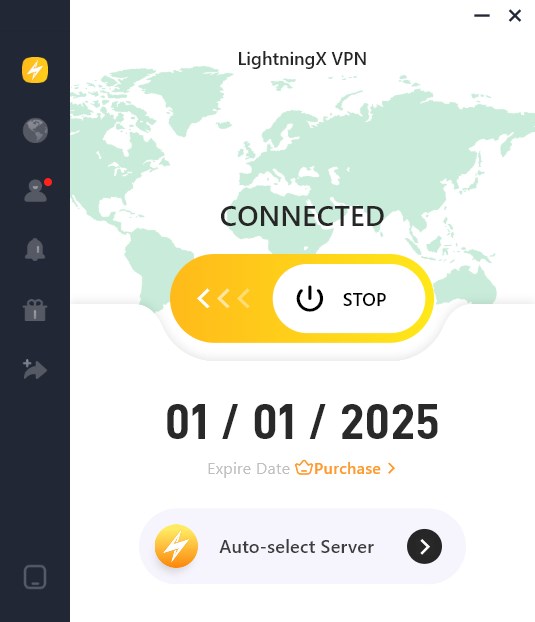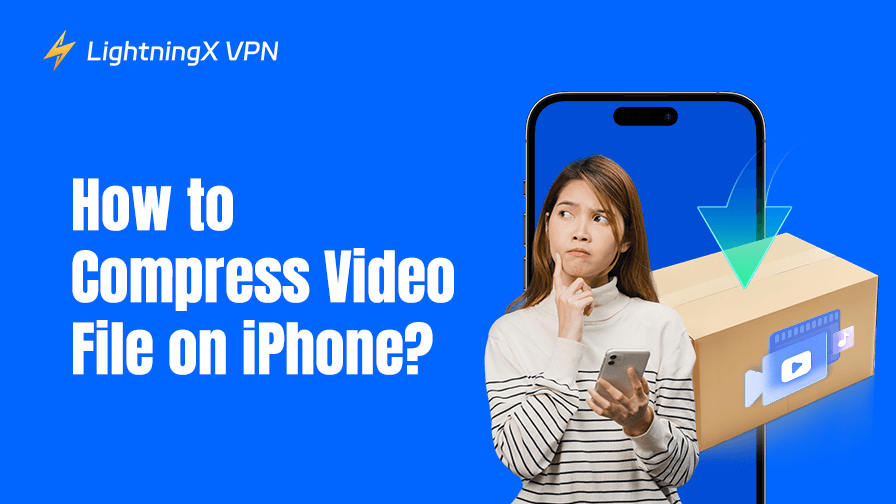VPN is the best assistant in your online activity. Whether you’re at home, work, or in a public place, it creates a secure and private tunnel through which your data can travel, preventing you from potential threats. This blog will describe the benefits of VPN as an effective tool for preserving online privacy.
What is a VPN?
A VPN (Virtual Private Network) acts like a secret passage to the digital world, hiding your data in an invisible shield.
This technology protects users’ privacy and information security by encrypting the connection between their device and the VPN server, preventing third parties from intercepting or altering data during transmission.
The 8 Biggest Benefits of VPN
Here are the details of VPN benefits:
Encrypt and Protect Private Data
VPN can encrypt the user’s network traffic and protect the user’s data from being stolen by third parties while surfing the Internet. The powerful protection of a VPN hides your real IP address, making it harder for third parties to discover and track your online activities.
Access to Restricted Content
For users who need to use networks across countries or regions, VPNs allow them to access certain content restricted by region. For example, streaming services or websites. VPN helps users break the limitations of different regional network environments and policies to access the open Internet. It benefits from achieving an efficient and unified network connection.
Avoid IP Address Tracking
Since a VPN changes the user’s IP address, certain IP address-based tracking can be avoided. By using a VPN, user data is encrypted during transmission. Data leakage can be effectively prevented even under public Wi-Fi networks, ensuring the security of remote work.
Anonymous Browsing
A VPN enables you to browse anonymously by concealing your true IP address and encrypting your internet traffic. This means that websites, advertising, and even your internet service provider cannot trace what you do online. It keeps your browsing history secret and anonymous, increasing your online security and protecting your personal information from monitoring.
Prevent Bandwidth Throttling
A VPN helps keep your ISPs from slowing down your connection based on what you’re doing online. Sometimes, it can even reduce lag and boost your overall network performance.
Increase Internet Speed
Some VPN services can help users increase their Internet speed by optimizing the data transfer path, especially when playing online games or watching video streams.
Cost Savings
Instead of paying for pricey private lines like traditional networks, VPNs use public networks like the Internet to create secure virtual channels. It saves a lot on leasing costs. Plus, you don’t need to buy expensive equipment to set up your network, cutting down on hardware expenses.
Flexible and Convenient
If you need to adjust your network structure or change your VPN’s capacity and coverage, you can work with your Internet Service Provider (ISP) or adjust your settings.
Related: What Does a VPN Do? Understanding the Functionality and Benefits
Benefits of VPN for Different Users
Virtual Private Networks (VPNs) provide significant benefits to different users in a variety of situations:
Personal Use
Protect Personal Privacy: A VPN creates a private network just for you, encrypting all your communication data. This encryption makes it much harder for hackers to access your browsing history, account passwords, and other sensitive information. It helps keep your information safe and significantly boosts your privacy when you’re on a public network.
Freedom of Access: If you want to learn about and understand the culture of a specific region, a VPN makes it easy to connect to servers in different locations. This helps you bypass geographic restrictions, broaden your horizons, and access various information to meet your diverse needs.
Enhance Network Experience: Some common internet access may experience lag and delay. Choosing a quality VPN can optimize your network environment. To a certain extent, it can improve the stability and speed of network connections. It allows users to enjoy a smoother video and internet experience.
Prevent Tracking: Some ISPs and advertisers track your online behavior to push targeted ads. A VPN helps you by hiding your real IP address, reducing the risk of being tracked, and avoiding unwanted monitoring. It creates a private, undisturbed online space just for you.
Business Use
Businesses can benefit significantly from using VPNs in several ways:
Enhance Data Security: By encrypting data transmitted between employees and the company, a VPN protects sensitive business information from being intercepted by hackers or third-party competitors.
Strict Authentication Mechanism: VPNs ensure that only legitimate users and devices can access the network, preventing the intrusion of malicious external personnel and devices. It can build a solid network security wall for the enterprise.
Flexible Working: VPNs let employees securely access the company’s internal network from anywhere and on any device, so they can get important business data and applications whenever they need them. This boosts employee efficiency and satisfaction while strengthening the company’s competitiveness.
Remote Work Enablement: VPNs give you a secure way to access resources without worrying about regional restrictions. They let employees safely connect to company resources, databases, and applications. This means businesses can set up secure connections between different office locations or remote workers, making collaboration easier and boosting productivity.
Cost Efficiency: VPNs can leverage existing network infrastructure to help businesses expand and open new branches. This reduces the company’s need for expensive dedicated lines and maintenance, saving significant operational costs and time.
How to Choose a Best VPN
Choosing the best VPN involves several factors. Here are some guides with key considerations:
- Choose a VPN with strong encryption technology and comprehensive access mechanisms. It ensures your data ensure your data remains secure and isn’t intercepted or altered during transmission.
- Look for a VPN that does not record private data such as user activity logs. Ensuring your privacy is protected and no record of your browsing behavior is stored.
- Choose a VPN that holds relevant security certifications from reputable organizations, ensuring it meets high standards for safeguarding your information.
- Check the connection speeds of the VPN across different network environments to ensure they meet your needs. Also, ensure the servers are reliable to minimize connection issues.
- Select a VPN with multiple servers distributed across various regions and countries to accommodate location-based needs and ensure consistent performance.
- Ensure the VPN supports multiple operating systems (e.g., Windows, Mac OS, iOS, Android) and device types (computers, smartphones, tablets), and verify it can handle the number of devices you intend to connect simultaneously.
- The best VPN should offer prompt technical support to quickly resolve any issues or technical difficulties.
Based on the tips above, we recommend a high-quality VPN for you. That is LightningX VPN. It has a user-friendly interface and you can quickly connect global servers with just a touch. It supports multiple devices (Mac, Windows, Android, iPhone/iPad, and Smart TV) and helps you enjoy a high-speed, secure Internet connection. Let’s try it!

Conclusion
To summarize, VPNs provide a lot of convenience for users. With its many advantages, it has become an indispensable “protective umbrella” in the Internet era. Learn to use a VPN to enjoy the convenience of the Internet while personal information is better protected.


















